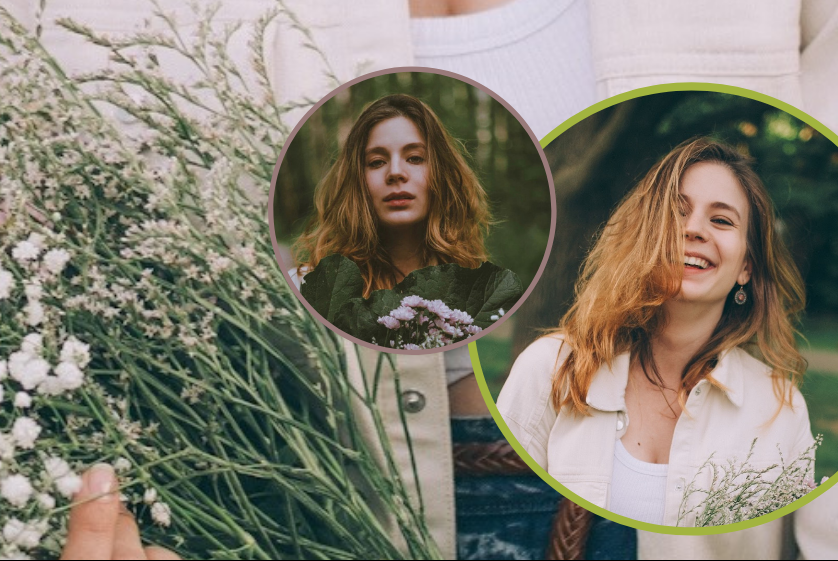Today as part of the Power of 10 feature we’re sharing the story of Natasha Dudina, former patient of Gift of Life’s sister charity Podari Zhizn and now an artist and graphic designer.
Click to read Natasha’s interview in Russian
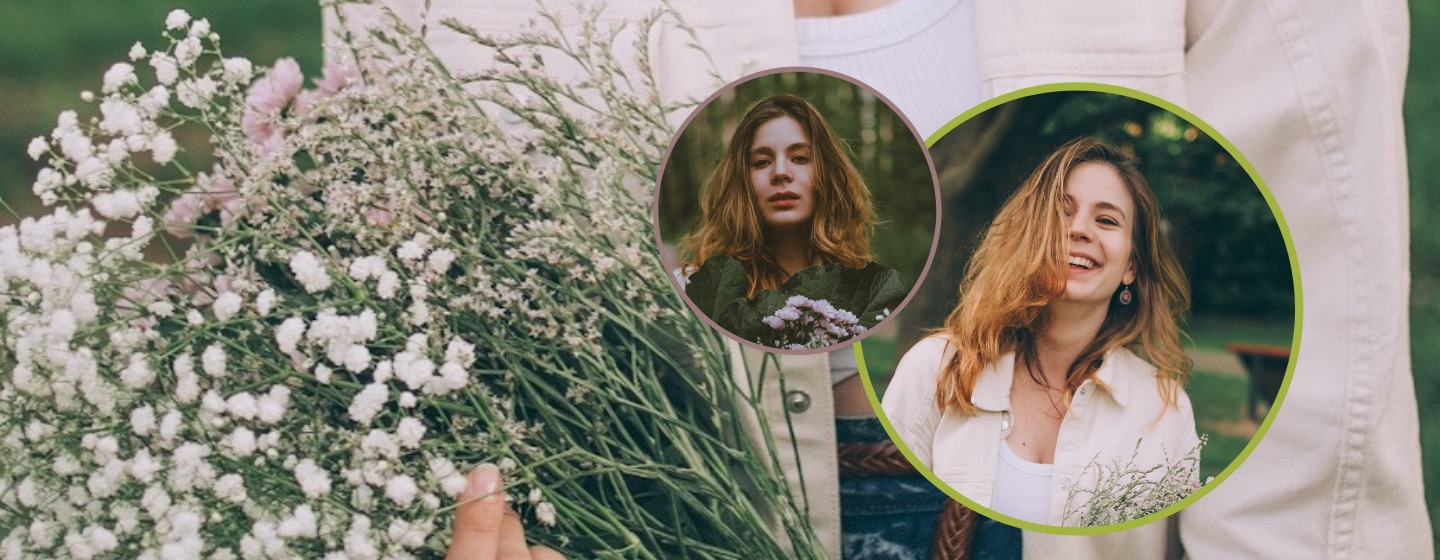
Natasha’s lengthy treatment for acute lymphoblastic leukaemia came to a successful end in 2014. A bone marrow transplant from an unrelated donor coupled with treatment in Germany helped her fight a recurrence of the illness. Procedures like this aren’t funded by the state in Russia and it’s thanks to supporters of the charity that came to Natasha’s aid; thousands of small donations meant there was enough money to pay her medical bills in a Munich clinic. The combined efforts of many people were multiplied to the power of ten and helped Natasha to overcome her cancer.
Natasha, just before the pandemic you flew to London for a Gift of Life charity gala to share your story and help raise funds for children waiting for bone marrow transplants. You had a bone marrow transplant yourself when your leukaemia returned. What was the most difficult aspect of that period?
I was so lucky to attend Gift of Life fundraising gala in London. I fell in love with this city immediately and soaked up the atmosphere during my visit to England. I’m very grateful to the team and its supporters and I hope my story will inspire people to go on helping children in need, just as they helped me in the past.
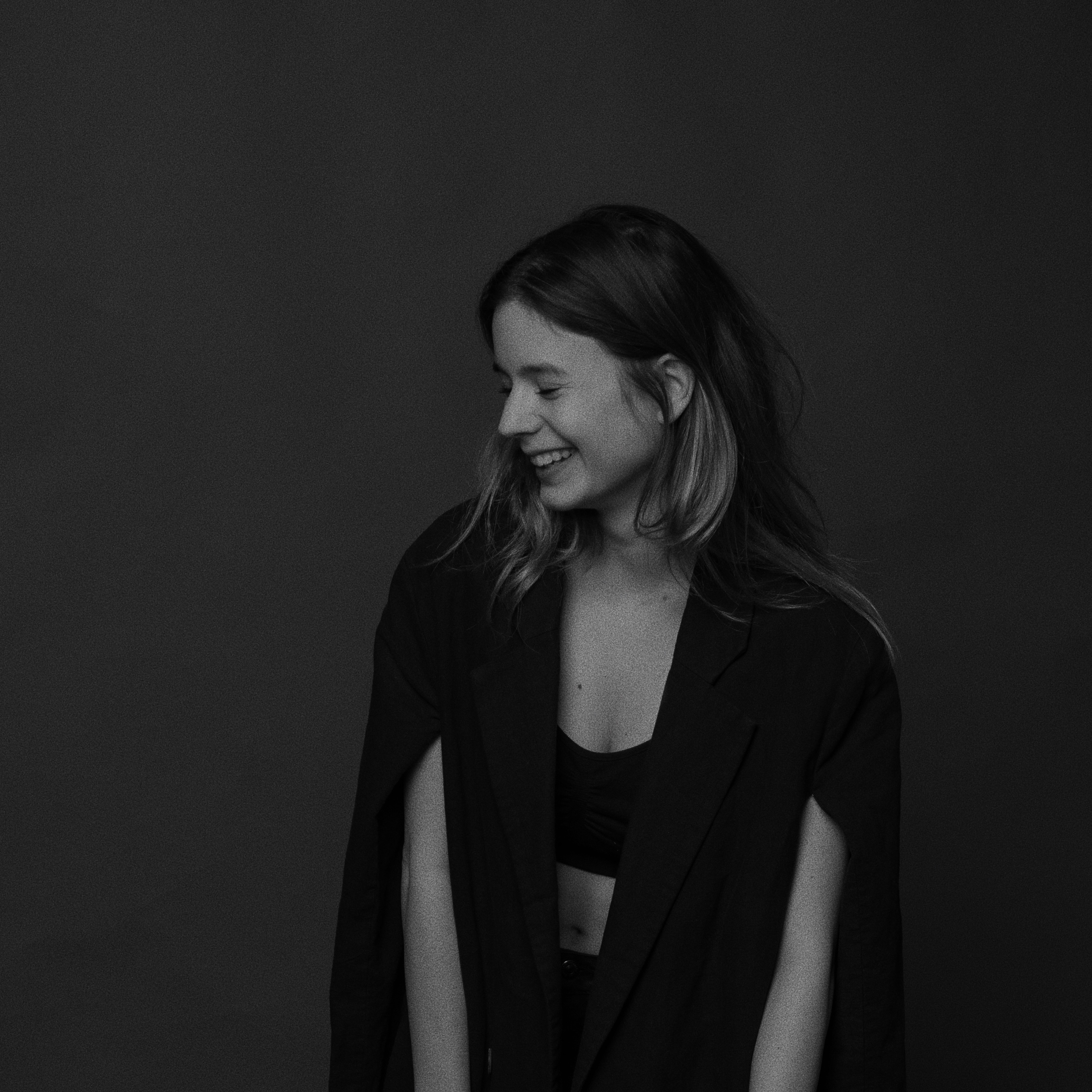
It’s not easy now to relive the memories of the time when I was ill. I remember how my body wouldn’t do what I wanted it to, and I even found it hard to walk from one wall to the other in the ward. When we walked along the hospital corridor, my mum had to hold me up. One side effect of the bone marrow transplant was that I kept fainting. The first time this happened was at home during breakfast. Mum was making breakfast and I was sitting at the table. We’d been chatting, and just as she turned round to carry on cooking I decided to move to the couch where I’d be more comfortable. I stood up and collapsed on the spot. Mum turned around to find me lying on the floor. That day, we tried to get to the hospital as fast as we could – we had to make our way from bench to bench. I’d start walking, and literally within 5 minutes I’d pass out again. It seemed to take forever to get to the hospital.
All this was the completely different to the life I’d been used to. Before I became ill I’d been a rhythmic gymnast training 4 hours daily for most days for ten years. I’d never have dreamt that it would be so difficult just to take a walk. But the fainting episodes weren’t the only thing that I found upsetting. I couldn’t stop thinking how I was making my parents go through this horrible situation all over again: unfortunately, mine wasn’t the first case of childhood cancer in our family – my sister, Masha, had also been diagnosed with the disease and the doctors were unable to cure her. So I felt guilty towards my mum and dad, as if it was my fault; I still feel that way, even now.
I had other worries as well. I was a teenager, but because of what was happening to me I was cooped up inside. All my classmates were getting ready to graduate, but I couldn’t even look at myself in the mirror. I didn’t like anything about myself and I was sure no one else liked me either. How could anyone like a girl who was all swollen with hormones and had absolutely no hair left on her body? I thought the only thing I could do – the only thing that was ‘right’ – was to isolate myself from people.
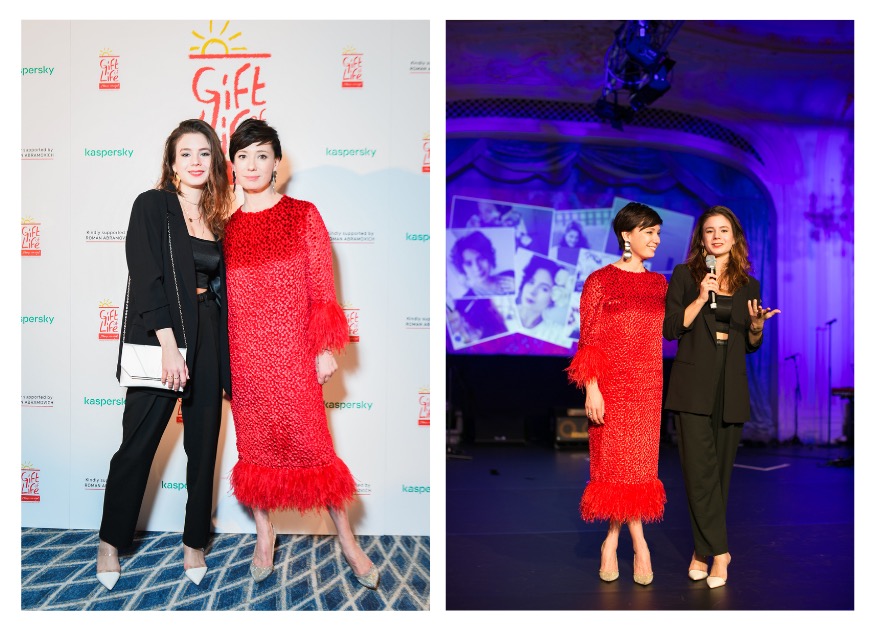
With Podari Zhizn cofounder Chulpan Khamatova
You overcame leukaemia and then survived the relapse – that’s a double victory. What helped you, a young girl, to find the strength to fight your illness?
First and foremost, it was my family. They surrounded me with love and care. My mum and I became remarkably close during that time – we still are. I worried a lot about my loved ones and how they had to go through this horrible situation all over again. I felt I really couldn’t let my illness beat me.
It was an extremely difficult time for my family. My mum had to focus completely on my treatment, she stayed with me at the clinic. Dad had to juggle visits to the hospital, his job and two other children at home. We became an excellent team. We did a great job dealing with what seemed an impossible task and we became close. My illness and recovery really brought us together!
I had an enormous amount of help from the Podari Zhizn foundation, from my friends, my teachers, family acquaintances, even from strangers. I never imagined a stranger would care about my life, but that’s what happened. Thanks to the charity I found out that when people come together to fight for a good cause, nothing’s impossible.
Being ill takes a lot away from us, but it also gives us something in return. What did you learn, and what did you come to understand about yourself and about the world following your recovery?
Firstly, I realised that nothing’s more important than family and loved ones. They’ll always be there, whatever happens. Secondly, I was constantly told that I couldn’t do things and I was restricted in the things I could do, so I had to learn patience. At that time, I felt like a prisoner. Like a little child, I’d ask my parents whether I could do this or that and every time the reply was the same: you can do it soon. But ‘soon’ never seemed to come. To tell the truth, even now, I still can’t stand being told I can’t do something.
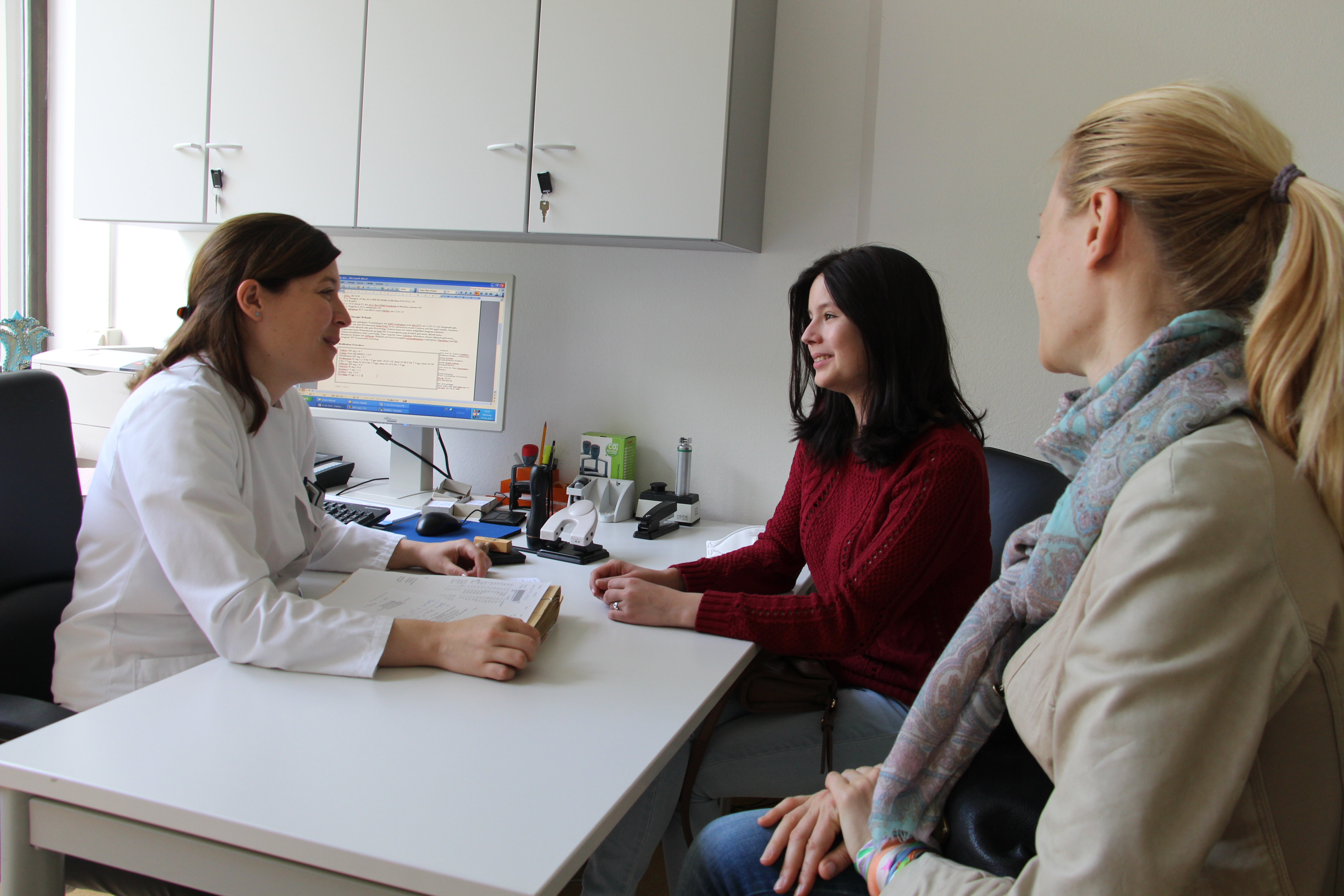
Everyone around me kept saying how strong I was, but I’m only starting to see this for myself now. Probably that’s because when I was ill, I hung out with children who were going through the same thing as me. I didn’t think it was a big deal at the time. They were all having treatment, just like me. But since I’ve recovered and can see things from another angle, I can see what people meant when they spoke about me being strong. If you could see how children having long-term hospital treatment get such excitement from simple things – things that most people don’t even notice – you’d understand.
Lately, life’s been full of worries and restrictions due to the pandemic, so it’s been really important to hold onto my ability to enjoy life. To accept what I’ve got and love the world just as it is. In the constant rush and routine of life it’s easy not to notice the small miracles all around us. I even invented a ‘wow!’ technique for myself that I can use whenever everyday worries are driving me mad: I went out into the street and deliberately started to be amazed at everything I saw. After that, it happened without my even thinking about it. I still use the technique now if I suddenly start feeling low.
That’s not the only change I’ve experienced since my treatment. I have a huge thirst for life. I’m on the move all the time, and I enjoy every day to the full. I want to see more, to appreciate each and every corner of the world, to notice more and give more back.
Apart from the support from your parents, at the hospital you were also supported and encouraged by doctors and volunteers. In addition, the charity provided a lot of financial support. This, too, contributes to the Power of 10: the kind of teamwork where people come together to save a life. Why do you think it is important to help others?
The foundation’s volunteers were always at the hospital. They brought board games, craft activities, and provided entertainment for those patients who were able to leave the ward. We even had a visit from some clowns! It really took our minds off things and helped us feel more positive. Our hospital beds didn’t feel quite so dreary, and we felt strong enough to keep on fighting the illness.
At the time, the help from the donors of the charity felt strange and unusual. Why were complete strangers donating money for my treatment? Why did they care about my life? I didn’t know the answers to these questions, and it made me feel rather awkward. In time I came to understand that every good deed generates its own energy, it helps to move things onward, it makes people better and makes the world a better place. Joy is shared, from one person to the next.
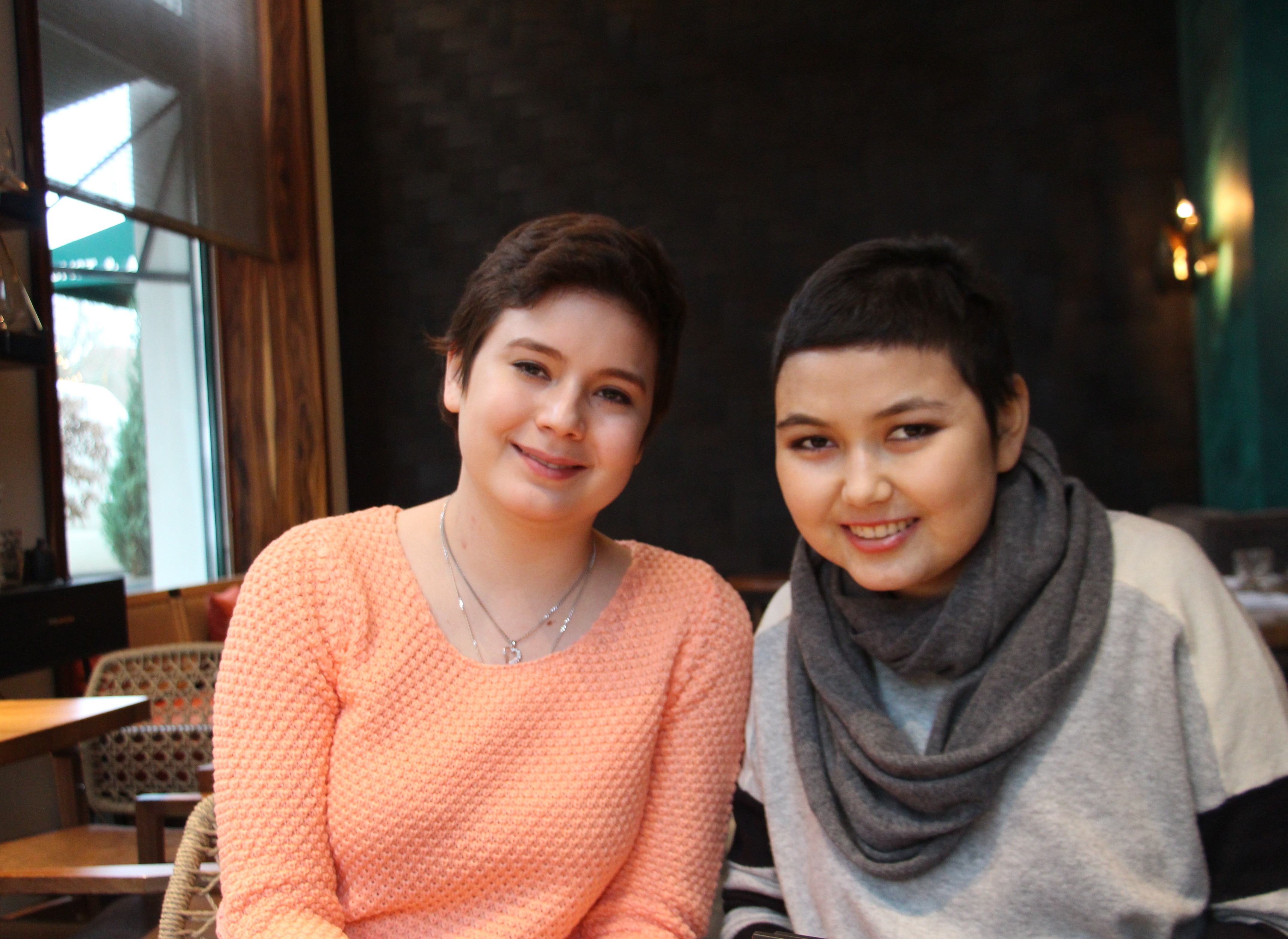
Nowadays you’re volunteering for the Foundation that saved your life. Which of the projects are you involved in?
Every year for six years I’ve taken part in the ‘Winners Games’ charity project, which first took place with the support of Podari Zhizn and is now independent. I’ve helped organise sporting events at the Games, and once I took part in a rehabilitation programme for children who’d finished their treatment, and their relatives. Unfortunately, because of the pandemic we haven’t been able to hold any events. However, I want to get back to helping as soon as it’s possible.
WINNERS GAMES
The World Children’s Winners Games is a sports competition for children who have had treatment for cancer. The project was started by the Podari Zhizn foundation in 2010 in Moscow. In total, more than 3000 children from 40 Russian regions and more than 20 countries around the world have taken part in the Games. Children who have overcome cancer compete at various sports, from swimming to chess. Competitions take place over several days and the event ends with an official award ceremony and concert.
The project would not be possible without the support of volunteers. Every year, more than 700 volunteers (such as organisers, helpers at the sports grounds, stewards, translators and craftspeople from the art village) help with the preparation and running of the Games. More than half of the project’s volunteers are long-term friends of the Games who come back year after year to help. Many members of the volunteer team have been involved since the Games started, and even plan their holidays around them. The secret to the special atmosphere at the Winners Games is in the real sincerity and warmth of the relationship with the volunteers.
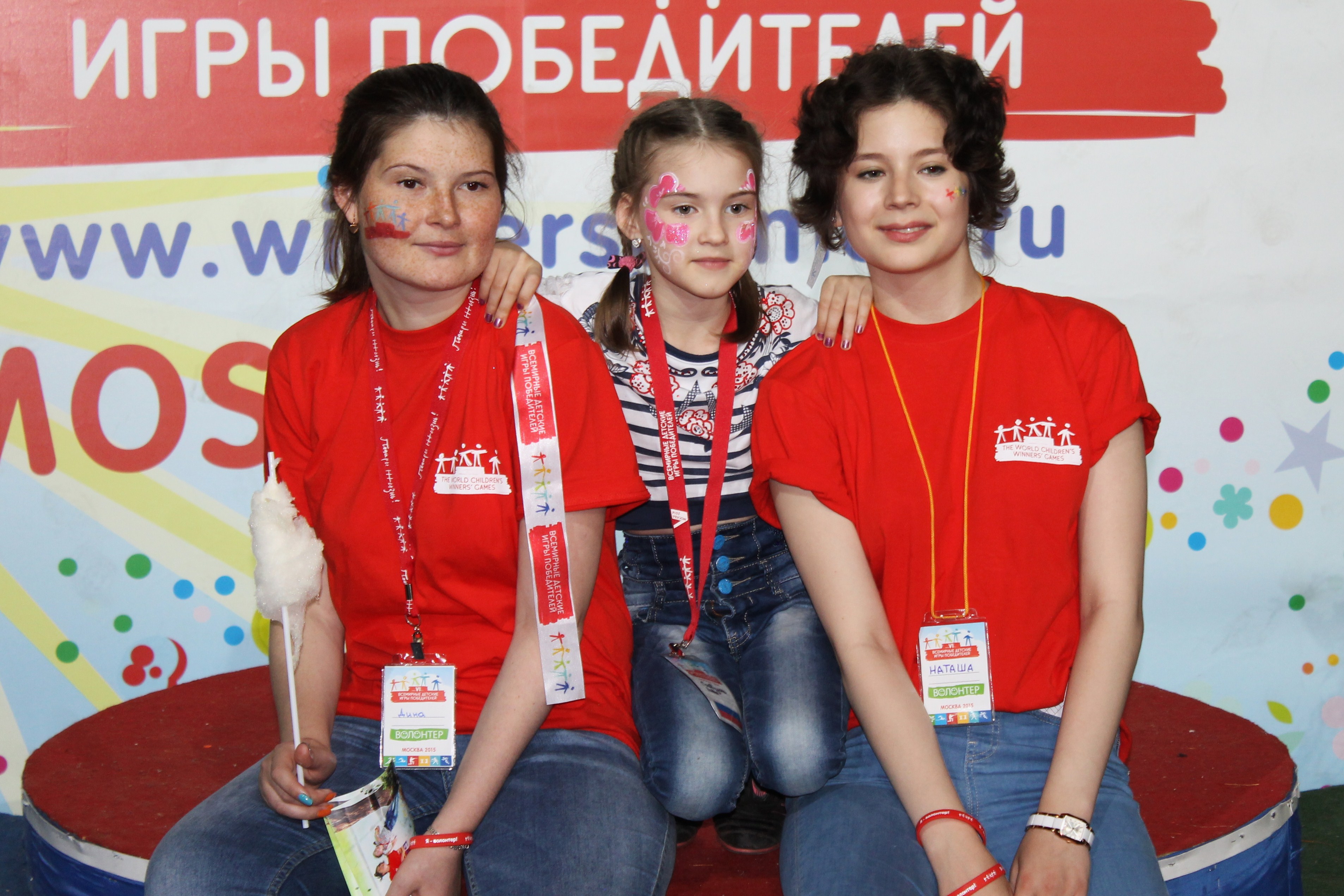
The aim of your creative work is to convey feelings and emotions. Where do you find your inspiration?
What really inspires me most when I’m creating a picture are strong emotions, and these are reflected in my work. I’m not restricted to portraying misery or unbounded joy: I see nuances, and I try as far as possible to incorporate in my work the whole spectrum of feelings, accepting every emotion as a part of myself. If the emotion is strong enough, it will be transferred to the canvas.
Imagine you were asked to paint a portrait of a person of your choice for a charity auction. Who would you paint and why?
I wouldn’t choose to paint a famous person – there are already lots of portraits like that. The most interesting thing for me would be to paint the shining eyes of one of the charity’s patients, showing that same spark that made them fight with all their strength to beat their illness. A picture like that – a reminder of a person’s unlimited strength, would be especially spiritual.
Even before the pandemic you were working freelance. Have you been able to make a full return to your work as a designer since lockdown ended?
I’ve been lucky in my choice of profession. I hardly stopped working during lockdown. First, I worked with a gallery setting up an exhibition, and after that I did my own thing. Currently I’m working on a design project for two office spaces and I’m thinking about how best to develop my work in this area. I’ve decided on the direction I want to go: I find public spaces more interesting than domestic ones.
It’s nearly summer. Where would you like to spend your holidays?
Last year I couldn’t go on holiday, so this summer I really want to make up for it. I want to go to the mountains and be near the seaside. For me, mountains are where I find strength. They’re full of creative energy, and energy for life. And I’ve just really missed the sea.
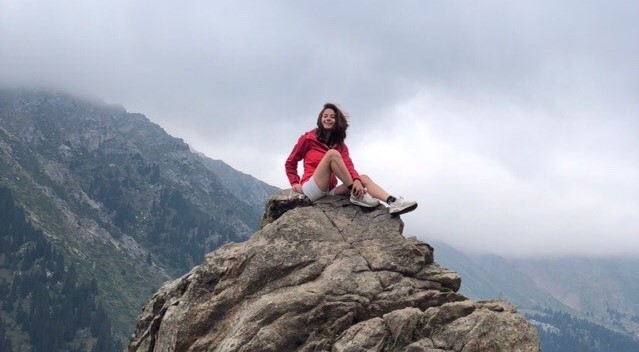
The pandemic has changed all our lives and has had a huge impact on the voluntary sector. Fortunately, despite this difficult time thousands of people continue to help sick children to get well. What would you like to say to these people – Gift of Life’s friends, donors and volunteers?
I want to say thank you. As the charity’s supporters, you’re the most amazing people and I really admire you. You give the children joy, faith in their dreams and hope for the future. When we work together, this ‘mechanism’ for good and this widescale support succeeds despite the circumstances. Thank you for this miracle!
#GOLpowerof10
To support our work and help children and young people like Natasha to beat cancer, donate now.
Photos: Natasha Dudina, Gift of Life, Podari Zhizn
Translation: Louisa King

